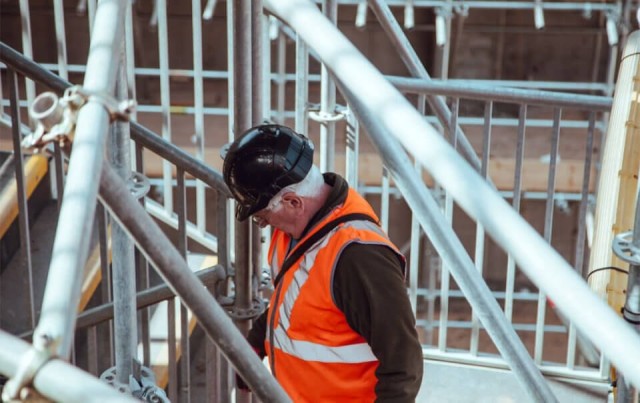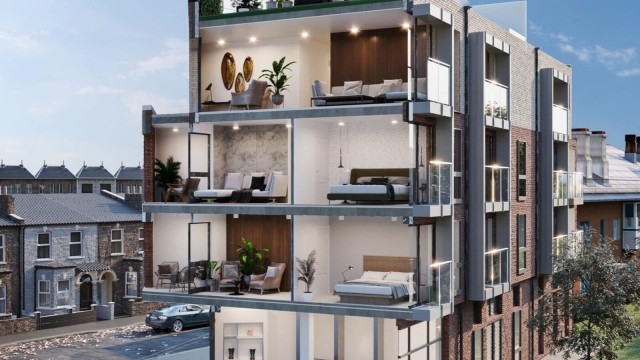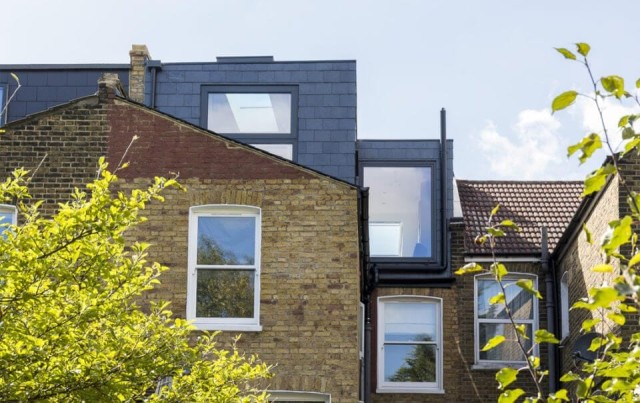Read next
The latest news, updates and expert views for ambitious, high-achieving and purpose-driven homeowners and property entrepreneurs.


You’ve bought a piece of land that came with permission to build a house on it. Or you have planning approval for an extension, but money has been tighter than you thought when you made the application.
So you’re wondering: how long does planning permission last? Is there anything you can do to stop it from expiring before you’re ready to start building? How you can keep your planning permission alive? And, if it has run out, does that mean you have to go through the whole process all over again?
In this post, we’re going to answer those questions to help you work out what you should do next.
Normally, planning permission is valid for three years from the time the local planning authority grants it. There are exceptions, but they are rare and, if your case is one of them, it should say so clearly in your letter of approval.
So, let’s assume that there is nothing unusual about your site. That means that if you have full planning permission, you have three years in which to start construction work on the site. And if you have outline planning permission, you have three years to seek planning permission for your reserved matters. Which raises another question…
If you made the application, you will know which type of permission you have. But if you bought land or a building with planning permission in place, you might not.
As the name implies, full planning permission covers everything concerned with a project. Once you’ve made sure you’re complying with all conditions from the local planning authority’s approval letter (and you have building regulations approval), you are ready to start building.
Outline planning permission is mostly used for bigger projects. You’re essentially asking the local authority to agree to the overall idea of the scheme, and then – when you are ready – you put in separate applications covering the details (“reserved matters”).
In either case, though, you have three years during which you take action to keep your planning permission alive. So what do you need to do?

Once upon a time, planning permission had no time limit. But in the 1960s, local authorities decided that too many landowners were getting permission and failing to build, so in 1968 the government brought in a five-year cut-off. In 2009, this was reduced to the current three years.
The point of the legislation, then, is to make sure if you have planning permission, you actually use it. So if you have outline permission, you need to decide on your details and get your applications for approval in before the three years run out. Then, after the approval of the last reserved matter, you have another two years in which to begin construction.
And if you have full planning permission, you need to make a start on the building works within the three years. Which sounds simple, but what if you’re not ready to begin construction?
In fact, this is where things get less straightforward. You might think that at this point you have to start work and keep going until you finish. But in practice, that’s not how things work. In many cases, if you make some kind of clearly visible first action, you can keep your approval alive without beginning the main construction phase.
This is a slippery area that has been the subject of a number of court cases, so we’re not going to promise that there is one thing that you can do that will always work here. But we can make suggestions that can provide a solution to how planning permission can last longer than the initial three years.
These are the actions – ‘material operations’ – listed in the amended version of the Town And Country Planning Act 1990 that demonstrate the beginning of work (often referred to as ‘commencement of development’) on a site:
As you can see, in a lot of cases you can meet these conditions without committing yourself to hiring a full construction crew. ‘Digging a trench which is to contain […] part of the foundations’, for instance, is a popular move that local authorities often will accept as evidence construction is underway.
But, what does this mean for your project?
It is crucial to ensure that all pre-commencement planning conditions specified in your planning permission are comprehensively addressed and officially discharged before any work begins.
Most of the planning conditions can be discharged once your tender and construction drawings have been prepared. This step, also known as RIBA Stage 5, is essential for submitting your building regulations drawings for Building Control application and enabling contractors to provide accurate quotes and commence work.
Additionally, if the construction is likely to affect adjoining properties, it is essential to have Party Wall awards in place. The awards specifically set out the rights and obligations of each owner, detailing the work that can be conducted, the manner in which it must be undertaken, and measures for preventing or resolving any damage to adjoining properties.
First, some good news. You don’t have to worry about whether in your mind you are starting work now and intend to keep going or are just making a start to stop your planning permission from expiring. The courts have decided that the homeowner or developer’s intentions are irrelevant.
So, what does matter? Two things.
The first is the easier one. Your starter works need to be in the right place. If, for example, you are digging a trench for foundations, that trench can’t be just anywhere on your site. That trench needs to be exactly where the foundations are in the drawings you submitted for your planning approval.
The second issue is more tricky. Your initial works need to be more than the bare minimum. But that’s subjective, so that means that a council official – or, in the worst-case scenario, the courts – are judging whether you’ve done enough.
At one point, the answer to ‘how long does planning permission last?’ was ‘three years, and then you can apply for renewal’. But in 2013, the government took away the option of paying your fee and the local authority extending its approval as long as there had been no major changes to do with your site or in their policies.
So now you have two options: stop your permission from expiring, which we discussed above, or put in a new application. However, a legislation update made in October 2023 means councils now have greater authority to refuse planning applications by those who were formerly granted planning permission, but who let their permission lapse by not commencing works within the required three year period. This is definitely something to keep in mind if you are submitting a new application.
To make things even more interesting, there is also a third option.
If your planning permission is nearing expiry and construction has not commenced, you can apply for a replacement planning permission. This can be made under Section 73 of the Town and Country Planning Act 1990, allowing for the variation or removal of conditions associated with the original permission without fundamentally changing the nature of the development.
It's important to note that this is not a renewal of the original permission but rather a new approval, which also needs to be acted upon within a specific period. This option is particularly useful when minor modifications are needed, or conditions are no longer relevant or achievable.

Is reapplying for planning permission different to applying originally? No and yes.
The official line is that even though you got approval, say, five years ago, your new application is treated just the same way as any other application. Whether that's really the case may depend on the size of your application. If you are extending your home, then the fact that you haven't built it yet is not a practical problem for your council.
On the other hand, if you have permission to build 20 flats and haven't done so, that will start to affect the housing supply. Many councils - especially in London - are worried about "land banking" - the idea that firms are hoarding developable land until the moment it reaches its peak value rather than building on it. Keeping planning permission alive can be a part of this. That's why some councils reserve the right not to even assess a planning application that's unchanged from one that has just expired.
But if you are making modest additions to your house, and you’re not thinking of making any changes, then you will have all the drawings plus surveys and other additional information already done. And, although having been granted permission before is absolutely no guarantee of getting it again, it sets a useful precedent – at least as long as nothing major has changed.
So before you apply again for expired planning permission, check whether the LPA has changed its policies, and have a look at how similar recent applications have fared. If the planning officers are now rejecting applications like yours or if the council has decided it no longer wants to encourage a certain kind of development, then you need to consult a planner and hire an architect to adjust your plans to the current conditions (or find a firm that does both).
Again, the size and type of your project could be a factor here: you are probably less likely to run into a shift in the council's approach if you’re building an extension or conversion than if you are proposing 10 houses. But in all cases, do your homework – or hire people who know what they are doing to do it for you when reapplying for expired planning permission.
What we’ve done here is to provide a very broad outline of what can be a complicated subject. Although planning procedures are set out by national legislation and guidelines, each local authority puts them into practice in its own way.
So although we’ve been able to tell you in this article how long planning permission will last, what we can’t tell you is how strictly your local authority approaches deciding if you really have made a start to your project. Or, if your permission has expired or is about to expire, what your chances of getting approval again are.
In order to get those kinds of answers, you’ll need to explain the specifics of your case to someone who knows what they are talking about.
Urbanist Architecture is a London-based RIBA chartered architecture and planning practice with offices in Greenwich and Belgravia. With a dedicated focus in proven design and planning strategies, and expertise in residential extensions, conversions and new build homes, we help homeowners, landowners and developers achieve ROI-focused results.
If you like us to help you with rethinking your existing project or putting in a new application for planning permission, please don’t hesitate to get in touch.

Claudia is our planner, specialising in green belt developments and other complex planning applications. She provides regulatory research and evidence-based advice, negotiates with local authority planning departments, and keeps us informed of the latest legislation and government guidance.
We look forward to learning how we can help you. Simply fill in the form below and someone on our team will respond to you at the earliest opportunity.
The latest news, updates and expert views for ambitious, high-achieving and purpose-driven homeowners and property entrepreneurs.
The latest news, updates and expert views for ambitious, high-achieving and purpose-driven homeowners and property entrepreneurs.










We specialise in crafting creative design and planning strategies to unlock the hidden potential of developments, secure planning permission and deliver imaginative projects on tricky sites
Write us a message